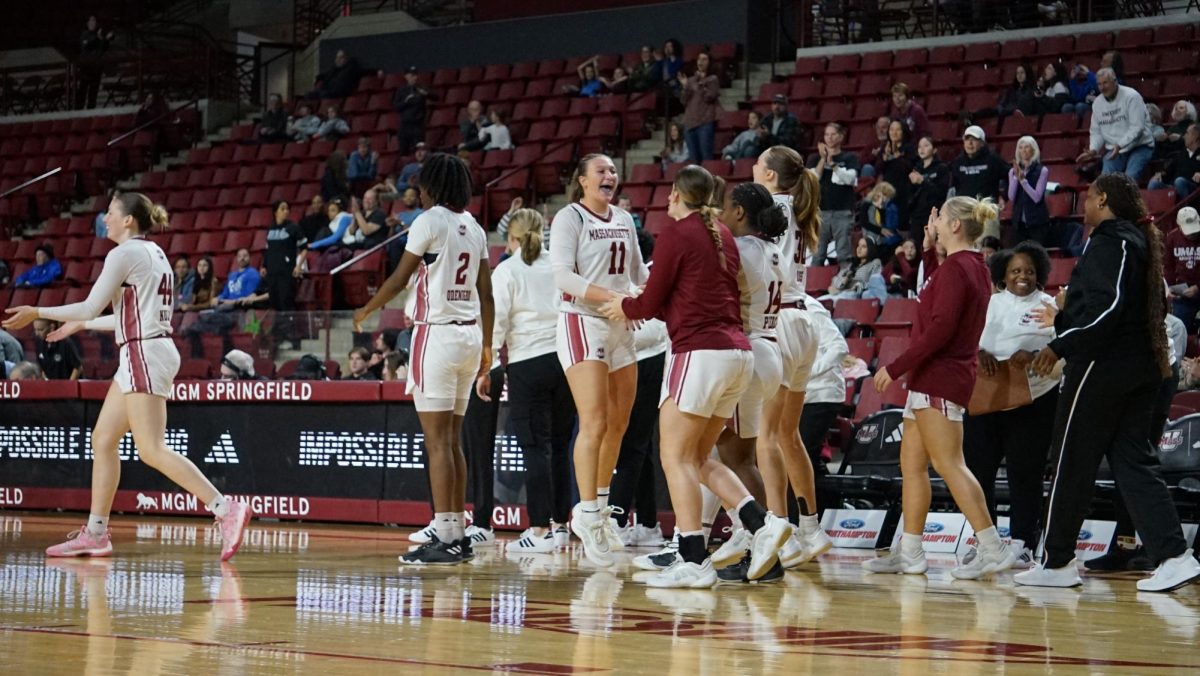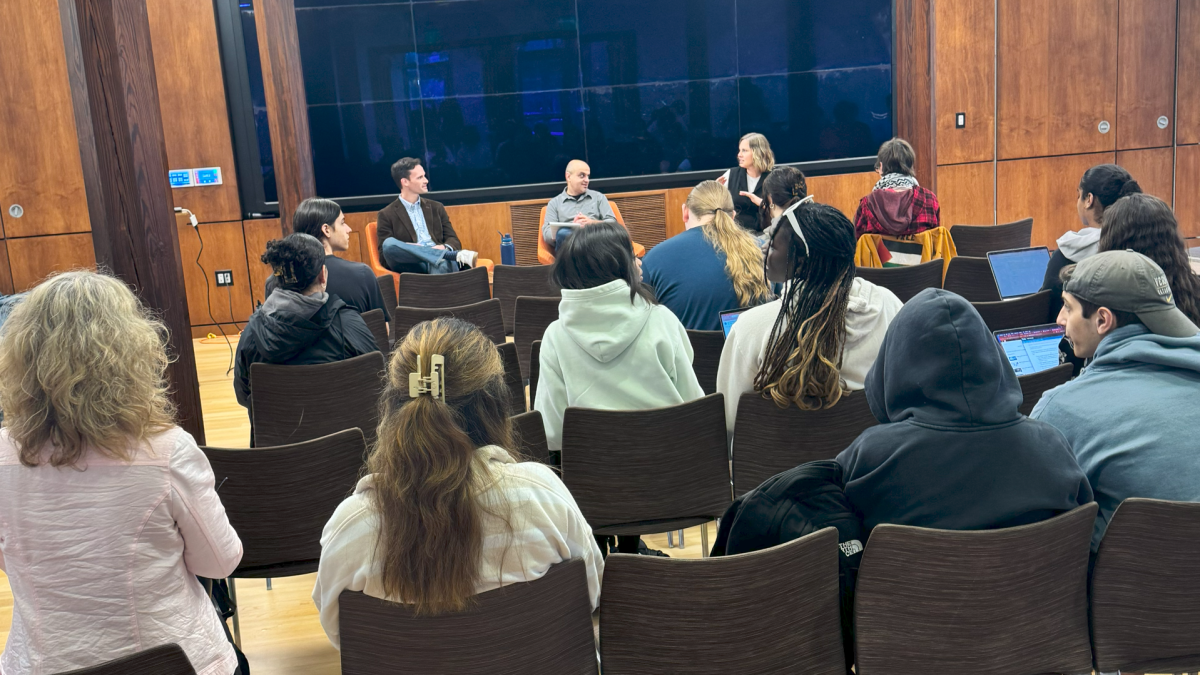The March 4th Day of Action to Defend Education- UMass Amherst Coalition issued a set of demands to Vice Chancellor Jean Kim on Thursday, March 4th at around 1:00 p.m.
The march began at the Student Union with chants and shouts for economic justice. When the crowd, led by megaphone-brandishing Sarah Meunier of the March 4th Coalition, ceased their march, they were told to remain silent and respectful while inside Whitmore.
The procession moved to the second floor of Whitmore in almost complete silence. Tension and anticipation hung in the air while the delegates parted from the group and headed up to the Chancellor Robert Holub’s office.
Unfortunately, the Chancellor wasn’t in. The demands were issued to Vice Chancellor Kim.
Photo credit Lauren Scrima / The Amherst Wire
The delegates rejoined the crowd, led them out of Whitmore and resumed chanting. Some employees chanted in languages other than English, adding to the rally a feeling of importance that reached higher and deeper than the sounds of the angered students alone.
In an interview later that day, UMass spokesman Ed Blaguszewski communicated his views on the demands. “The University has advocated strongly to secure as many funds as possible and has worked closely with the legislative leadership and Governor Patrick to keep that high on the agenda. We’re very much in concert with the concern and the desire of folks in terms of providing more money for the University and having it focused on providing students with a good education, so I don’t think there’s disagreement on that at all. What people do need to recognize is that the administration of UMass Amherst and of the other UMass campuses are really part of a larger equation and we’re making due with less money each year. As we grapple with priorities we try our best to make the best decisions and manage a lot of different needs.”
One of the major demands is to halt the construction of the $12.5 million police station on campus. According to Meunier, “taking our fee money to build a $12.5 million new police station doesn’t equate to more safety for us.” Katie Roussos, a member of the UMass Coalition added that, “If [the administration] want to increase safety they wouldn’t close the only health care facility on campus from midnight to 8 a.m., making it so that there is no on-campus rape crisis.” Round the clock care at University Health Services and a rape crisis center were also included in the list of demands.
Unfortunately for the UMass Coalition, Blaguszewski explained that “the police have been in an outdated building for many years in Dickinson Hall and they were due to have a modern space to house modern equipment and manage a variety of security cameras and dispatch across campus, and those things are done now, but in very cramped quarters with limitations,” so, “that building is going up. The ground is broken and the money is committed and the building is under construction, so that is going to happen.”
Tiffany Yee, Vice President of the Graduate Student Senate, is especially concerned with the lack of ability students currently have to participate in the budget making process that seeks to make use of their money.
“There are students participating [but] we are there to listen. We have no say.”
Blaguszewski responded to this statement.
“The [budgeting] process in pretty much all colleges and universities involves assessing what the revenue is, what your expenses are, talking with key constituencies on campus. Chancellor Holub, drawing from all that advice, makes a decision and then forwards it up to the board of trustees and the president and they vote in a budget. There are student fees that are allocated to the Student Government Association and they really do have great influence and control over how those are spent.”
On the subject of reforming campus food costs, UMass Coalition Public Relations Officer, Evan Serio argued that “[students] don’t have affordable, healthy choices. We either have the choice of what they have given us: large corporation, really unhealthy food, or an increase in the amount that we have to pay for a smaller choice.”
Yee added that “It’s not just about healthy food; it’s about more affordable food. Every year the meal plans just keep going up and up. Now there’s talk about mandatory meal plans for all undergrads. We can’t afford that.”
In reference to these concerns, Blaguszewski offered sympathy and optimism. “We want to make sure that we’re giving [students] the right options…Food is basic and it’s something that everybody is dealing with three times a day and we should take a look at [the food plan] and evaluate what the economics are and decide if any adjustment can be made.”
Serio affirmed that the Coalition has “made a list of demands and we have demanded that in return we get a clear cut plan of implementation, of how they’re going to be able to respond and fulfill our demands by March 31st and we will continue to mobilize and organize until all of our demands are met.”
“I think everybody was impressed and pleased that the protest was respectful and orderly and people made good points and were strong advocates, but there was no conflict” said Blaguszewski. “Protesting really is an important aspect [of the processes at UMass]. If people feel they want to go that route we respect that and that’s part of the college experience.”
Blaguszewski reflected nostalgically on his own college years during the Vietnam War, during which he and most administrators who are from the same generation witnessed the glory days of college protests. He added that “It’s good that the students take the initiative and care. I think that’s a good sign for their interest and their engagement and that they care about the University.”
The next meeting of the March 4th Coalition is next Tuesday, March 9th at 5 p.m. in room 168 C in the Campus Center.






